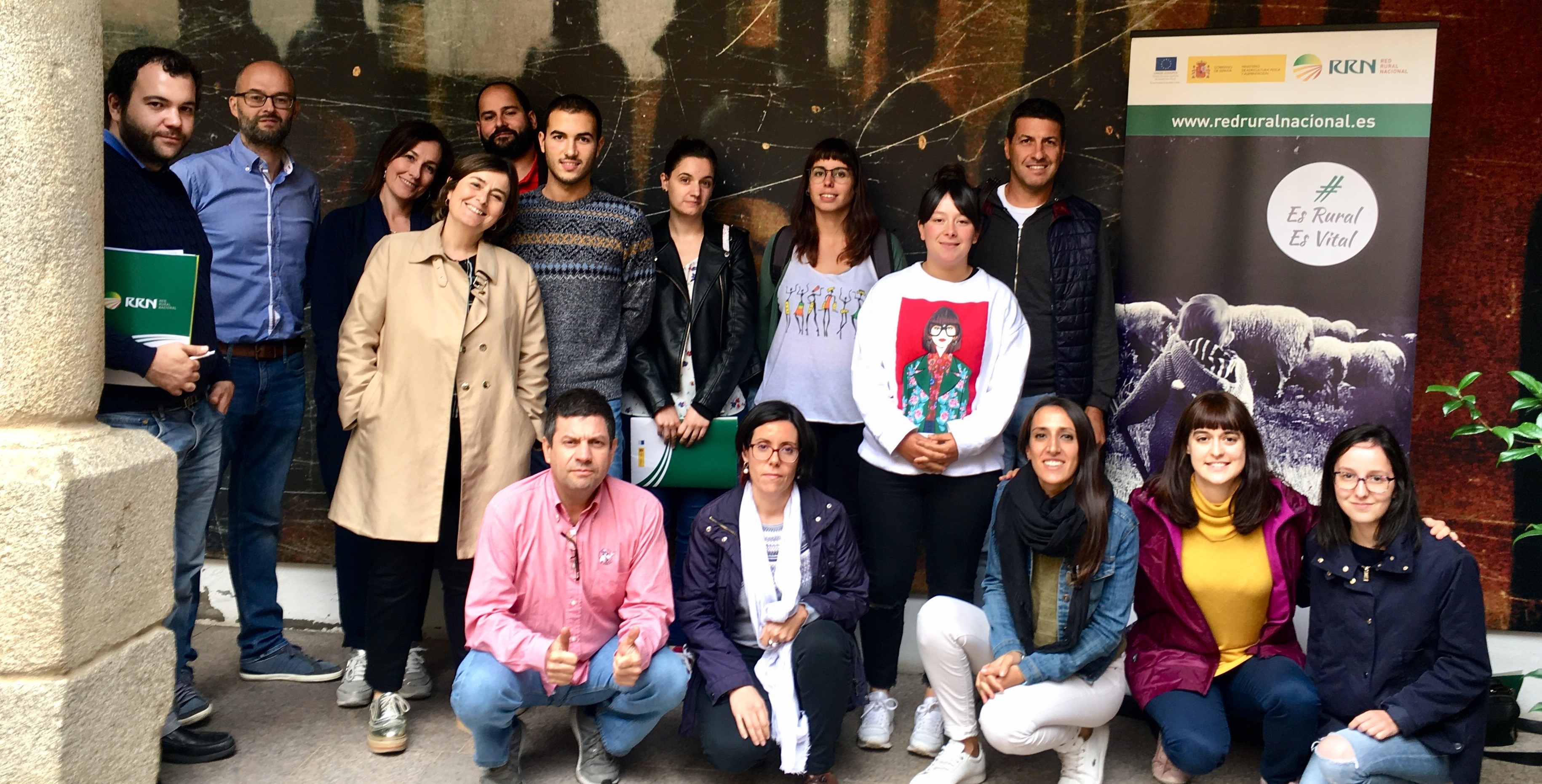
04 de October de 2019
On 04/10/2019, Monforte de Lemos, a municipality in the province of Lugo, hosted the Rural Entrepreneurship Workshop, organized by the National Rural Network (RNN), on September 30th and October 1st, 2nd, and 3rd, 2019. This workshop, included in the RRN's Action Plan, aimed to strengthen the entrepreneurial capacities of rural residents in this environment. Students had the opportunity to meet with relevant professionals who helped them structure ideas, delve deeper into the development of their Business Plans, and work on their personal brand.
The rural environment is much more than agriculture and livestock. The implementation of entrepreneurial projects in any sector, not just the primary sector, contributes greatly to the revitalization of the territory, serving as a driving force for change and a source of wealth and employment in rural areas. This is how the 14 participants in the Rural Entrepreneurship Workshop, organized by the National Rural Network in collaboration with l GDR Ribeira Sacra – Courel , a Local Action Group operating in the region. Four days combined theory and practice, giving students the opportunity to work on practical cases, hear directly from pioneering entrepreneurs in their sector, and learn firsthand about other initiatives funded by the European LEADER program. This helped build a shared perspective for reflecting on the future of their projects and their respective regions.
One of the most important questions they had to answer was: "What does your business contribute to rural areas?" This fundamental question sought to emphasize the importance of synergies between stakeholders operating in the region, seeking cooperation among all agents to build a sense of community, as a key aspect for revitalizing and adding value to rural areas. To achieve this, theory and practice were combined, as well as the personal experiences of rural entrepreneurs. One such case was the La Exclusiva project , which featured Victoria Tortosa, partner and founder of this innovative social entrepreneurship initiative, aimed at those living in small towns in the province of Soria, seeking to combat depopulation by offering access to essential products and services. This entrepreneur significantly emphasized the need to measure social impact , programming and planning indicators that allow quantifying the social contribution of the business, aspects that are highly necessary in rural areas.
Another perfect example of innovation was offered by Lucía Sáez with her Quesería Jaramera project , located in the small town of Torremocha del Jarama, Madrid. Despite being aware of the obstacles that entrepreneurship presents in rural Madrid, Lucía opted for the area, leaving her job as a consultant in the capital and making the leap to the countryside to create her own business: the production, sale, and distribution of artisanal cheeses. With multiple recognitions for quality and excellence, Lucía and her partner Pedro wanted to create a project they believe in and trust, and which is founded on the values of social justice, inclusion, and sustainability , prioritizing above all transparency, respect for the environment, and the key role of women in the agri-food industry. In addition to offering various tips for starting a business, such as the need to compare the different advisory services offered on the market, Lucía emphasized the importance of always trusting one's own work capacity:
“It's important to trust that you're capable, to accept that not everything is easy at first and that it requires sacrifice, an almost infinite amount of dedication, and a lot of discipline.”
The communications module, key to marketing and selling products, was led by Rocío del Cerro-Comunicación . One of the most important lessons Rocío wanted to convey was the need to nurture one's personal brand, which is closely linked to one's product or service. To achieve this, practical exercises were conducted, such as an elevator pitch and the development of a personal SWOT analysis, one of the most important activities for identifying an entrepreneur's strengths and weaknesses.
Furthermore, teamwork and participatory dynamics were the guiding principle of all workshop activities, seeking and achieving optimal, shared learning outcomes. On this last point, Sara Cillero, from the public company VALNALÓN , combined a strategy of participatory group work in her module I, supported by practical cases in which students could feel part of a community, generating hypotheses and real-life scenarios for decision-making, and facilitating and providing tools for managing and controlling time and business risks. Sara emphasized the need to always seek added value, both personal and professional, by investing in innovation and creativity, which allows for a clear differentiation of our offering in the market.
With all this, attendees were able to reflect, identifying the strengths and weaknesses of each project, and focusing their efforts on properly defining the products and services offered, with quality, innovation, and creativity . Ultimately, this National Rural Network Workshop has created a community of entrepreneurs from different Spanish regions, weaving a network of ideas and projects, mutual support, and cooperation.











